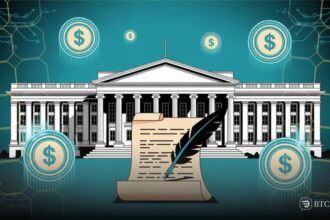El Salvador has approved a new Investment Bank Law that allows licensed investment banks to hold Bitcoin and provide cryptocurrency services. The measure limits these services to sophisticated investors with at least $250,000 in free funds.
Legislators state that the reform is geared toward luring international capital and encouraging sophisticated financing instruments. Authorities anticipate that it will reinforce China’s standing in regional finance as well as provide new prospects for massive investment. The law sets clear boundaries between investment banks and traditional commercial banks.
Licensed investment banks will operate under a separate framework and focus on complex corporate transactions, asset management, and strategic financial advisory. They will not compete with everyday banking services such as deposits or personal loans.
Bitcoin licensing oversight by the Central Reserve Bank
The Central Reserve will license and oversee compliance. Applicants will need to demonstrate that every client satisfies the requirement as an investor. Regulations require at least $50 million in registered capital for every licensed investment bank.
They also need to adhere to strict processes to authenticate the financial status of clients. The supervisory process will help equip only qualified investors with access to services, such as Bitcoin services. Investment banks, after being accepted into membership, can conduct extensive activities.
They can issue bonds, buy and sell foreign currencies, operate big financing projects, and offer guarantees. They can even apply to be licensed as digital asset service providers, which would allow them to store and trade Bitcoin as part of their services.
The crypto services will still be limited to knowledgeable investors, just as stipulated by the government’s strategy to attract high-value clients. According to officials, the new legislation paves the way for renewed capital injections into areas like infrastructure, technology, energy, and innovation.
New framework merges traditional finance and Bitcoin
Aiming at high-net-worth individuals and institutional investors. The government aspires to draw financial expertise and funds that will spur national development. Legislators view the reform as an effort to enhance El Salvador’s image in international markets.
They anticipate that it will provide depth to the country’s crypto-asset market. It offer strategic opportunities for financing, and enhance investor confidence. It targets transforming El Salvador into a sophisticated financial hub in Central America as it combines traditional investment instruments with Bitcoin integration.
A number of investors already indicated their interest in acquiring the system. Their identities cannot be revealed for the sake of preserving certain ongoing negotiations in the field of business. With this legal basis available, El Salvador would aim to direct such interest into impact projects that would grow its economy and reassert its resolve to pursue financial innovation.







